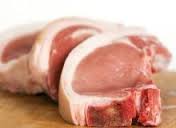
The COVID-19 pandemic was a shock to the livestock supply chain. When processing plants had to shut down due to outbreaks, it didn’t just impact the amount of meat on the grocery store shelves. Animals had nowhere to go.
That backlog can lead to overcrowding in the barns, which would lead to animal welfare issues. The best practice to solve that is euthanization and proper disposal of the animal. Keri Retallick, executive vice president of the Wisconsin Pork Association, says it’s an unfortunate situation, but necessary.
Retallick explains when processing plants reduced the amount of animals they could take, hogs continued to grow at the farm. When processing plants reopened, the pigs could not be harvested because the equipment is not able to process meat of that size. So, the hogs were euthanized and properly disposed instead of sent for food processing.
It’s not just a human disease that can result in mass depopulation of livestock. The U.K. had experienced foot and mouth disease. And the U.S. is working to prevent African Swine Fever from coming into our borders. Retallick says the U.S. needs to have plans in place for mass euthanization. The hog industry was not prepared when the pandemic rolled in, she adds.
The National Pork Board has invested $240,000 to research the hit to the supply chain, and is pushing $8 million in checkoff dollars to depopulation research.
Retallick says the industry is concerned about the possibility of ASF coming to the U.S. The National Pork Producers Council has put money toward more beagles at the airport and additional security to keep ASF out. The organization also supports other countries’ ASF mitigation efforts.
Today, the pork supply chain is, for the most part, back to normal, according to Retallick. However, consumers will see supply chain disruption on the grocery store shelf due to issues all industries are facing currently. Retallick says there’s not as many specialized products available, such as spiral ham.

